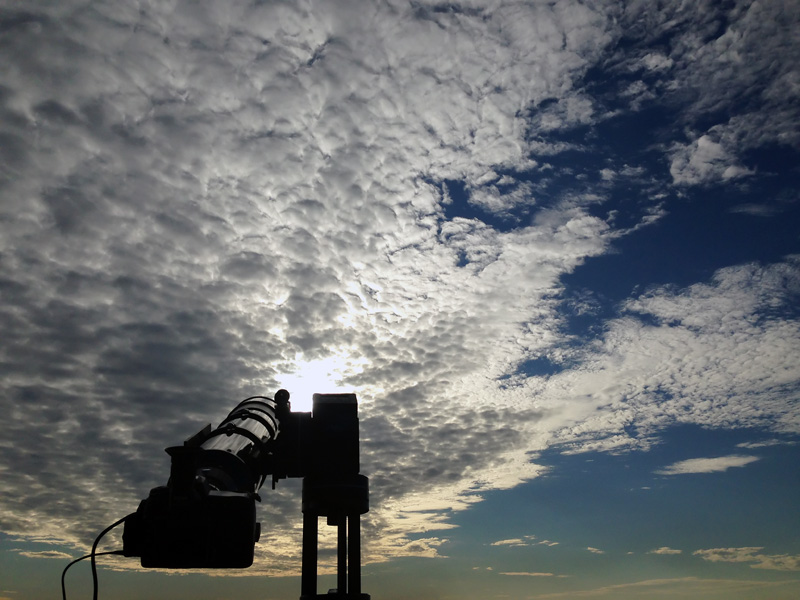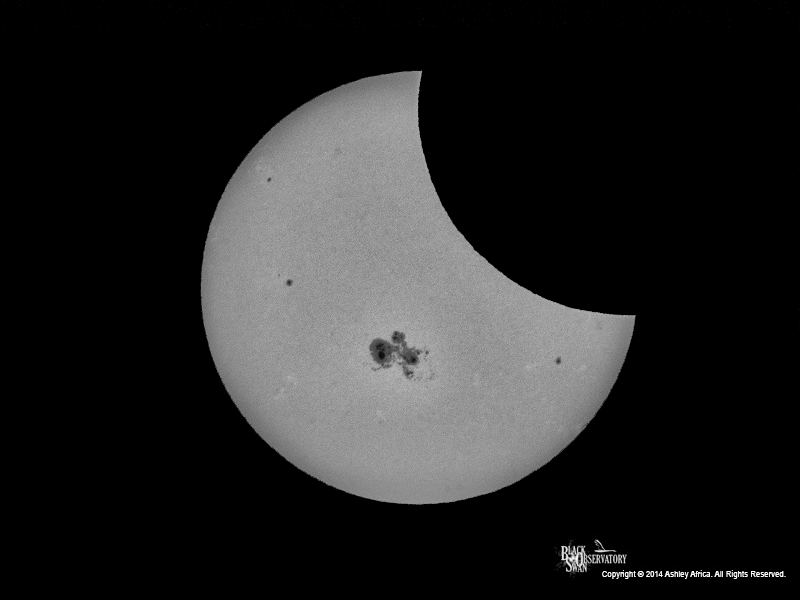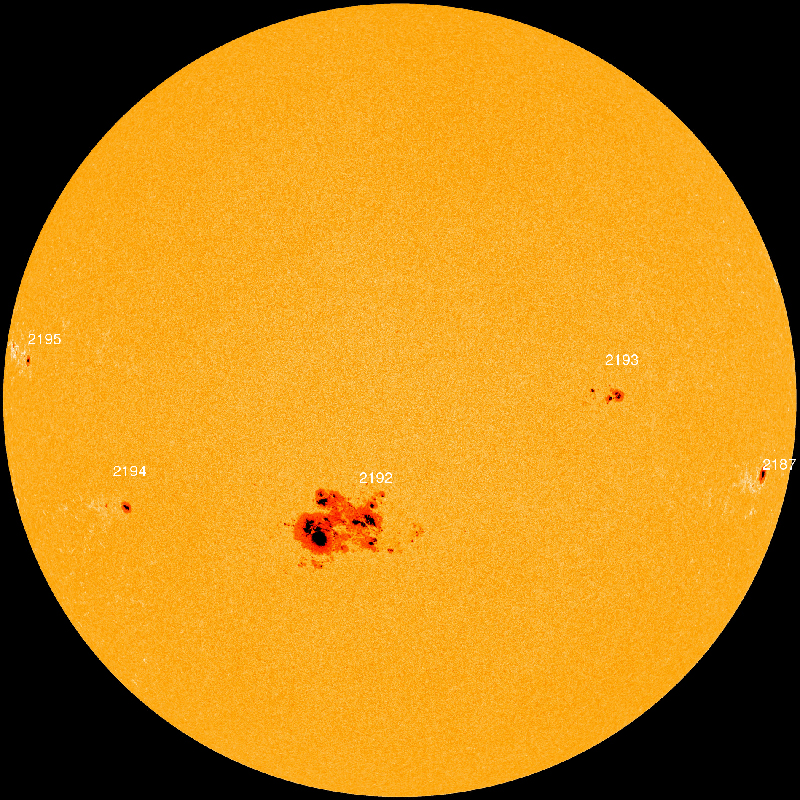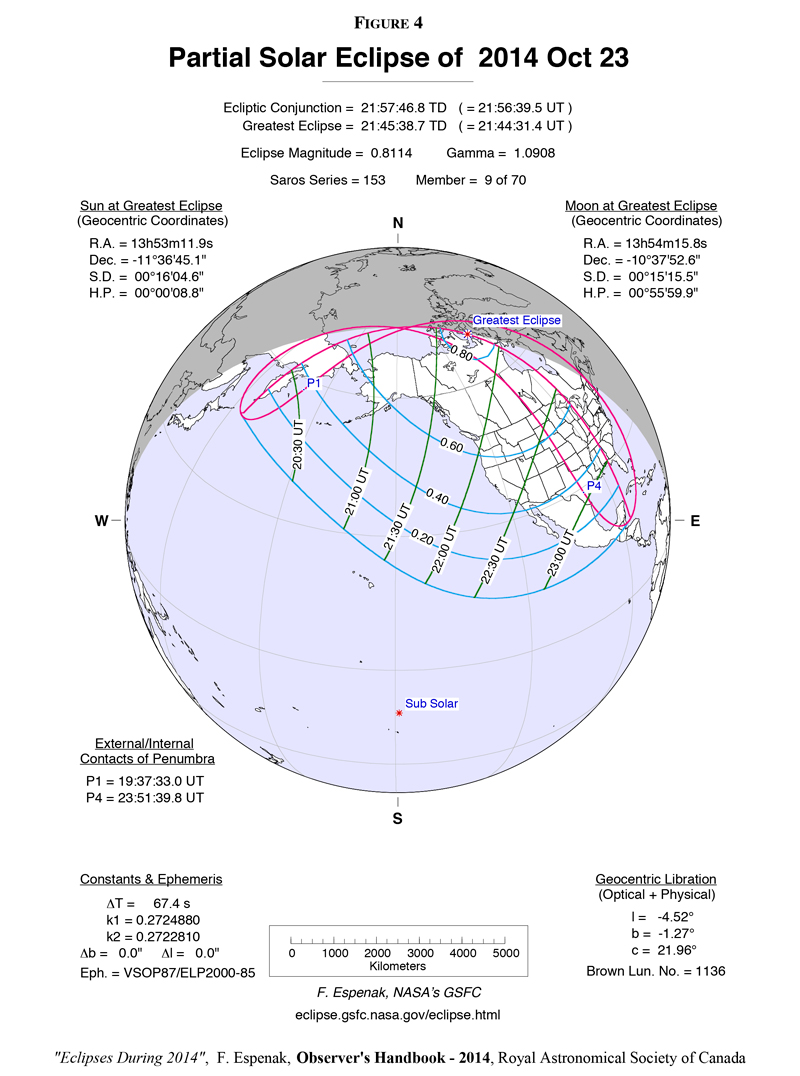|
ms.
Pacman in the Sky
Partial Solar Eclipse
- October 23, 2014
The photo(s) that almost never happened ...
Telescope and mount all set up, camera focused and at the ready ... scattered
clouds clearing, the whole sky (apart from the few cloudy patches) is a
magnificent blue, this is going to be an awesome afternoon to watch and
photograph the partial solar eclipse (the first one I'll have observed since
2003) ... 16:59 the start of the eclipse ... "aaarrrgghhh, what demons are
transpiring against me?" ... 17:20
(pictured below) while I'm starting to pace like an expectant father ... "%^*&,
I can't see anything through this cloud, I've missed the first 20 minutes, %^*&ing
cloud (the only one left in the sky) PLEASE move out of the way, I'm
begging here, for %^*& sake, the sun sets in another 47 minutes, and I'M GOING
TO MISS IT!!!"

Sometimes you can plan and do everything possible to setup and get that shot, but often you still need a little bit of luck on your side!
Maximum eclipse at 17:58 ...
Percentage of Sun obscured by the eclipsing moon = 22.9% ...
Sun set at 18:07!
Ms. Pacman


Image & Equipment Details |
| Date: |
October 23, 2014, 16:59 to 18:07 local time
(UTC/GMT -5 hours) |
| Location: |
Houston, TX, United States of America |
| Sky Conditions: |
Scattered clouds clearing, temperature 21 to 24° C
(70 to 75° F) |
| Optics: |
Celestron C6-R (6", 152mm f8.0 achromatic refractor) |
| Mount: |
DiscMounts DM-6 |
| Camera: |
Nikon D300s |
| Filters: |
Baader AstroSolar Safety Film & Siruis Optics
MV-20 |
| Exposure: |
Single exposure |
| Processing: |
Photoshop CS5 |
|
More About Sunspots
Ms. Pacman's mole ... AR2192 (AR = active region) ... Sunspots are temporary phenomena on the photosphere of the Sun that appear visibly as dark spots compared to surrounding regions. They correspond to concentrations of magnetic field that inhibit convection and result in reduced surface temperature compared to the surrounding photosphere.

|

|
|
SpaceWeather.com
|
NASA Eclipse
Website |
Site and all content
Copyright © Ashley Africa
|